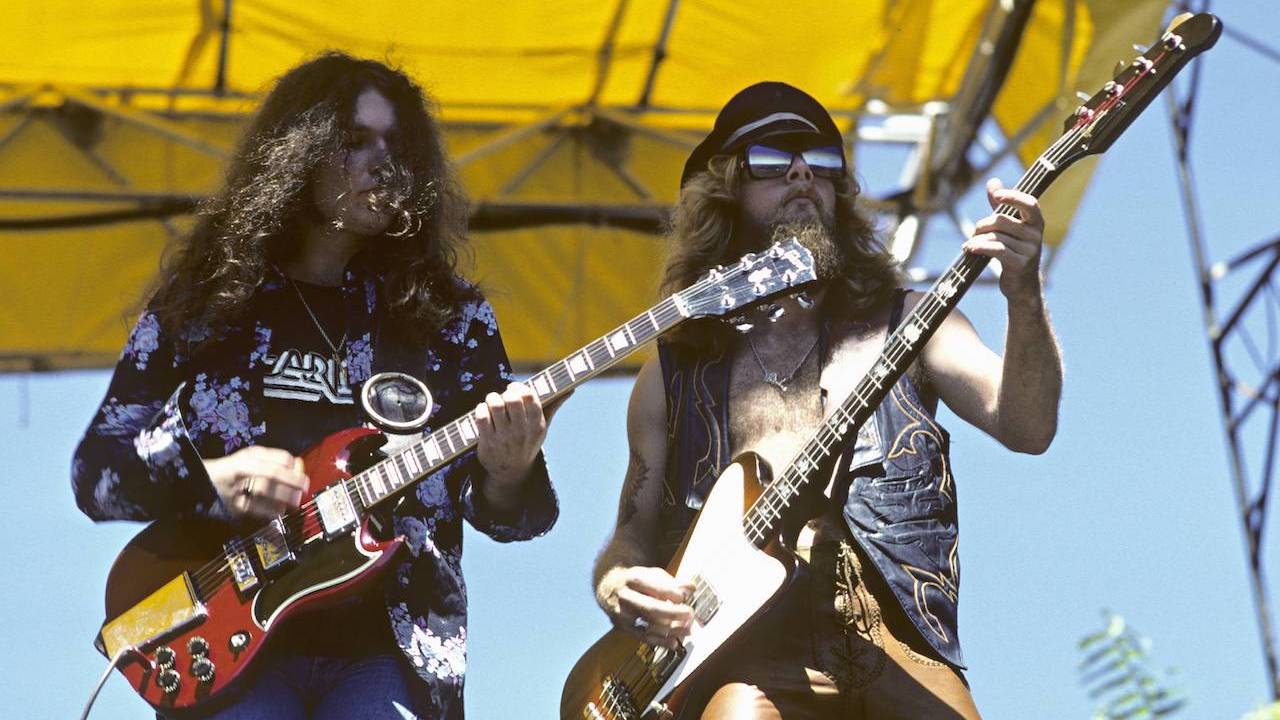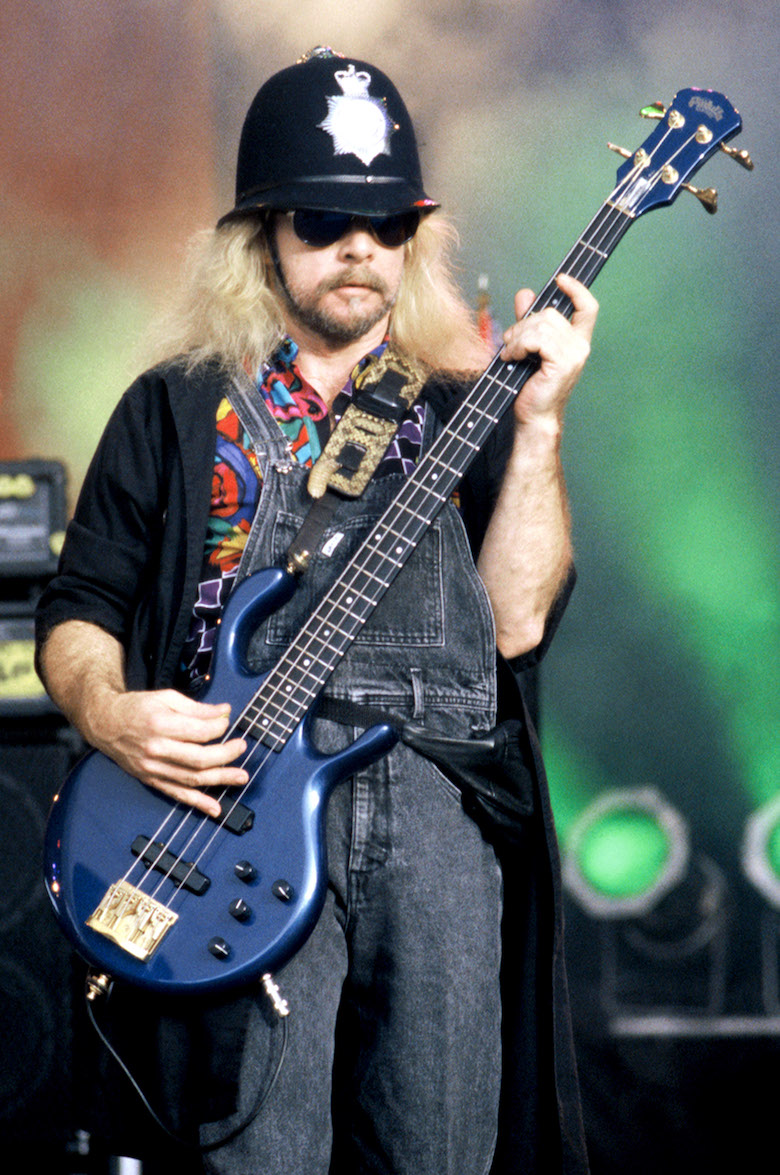One of the strangest guitar mods of all time? How Leon Wilkeson adapted his Gibson Thunderbird following the Lynyrd Skynyrd plane crash in ‘77
The ’63 T-Bird had a metal extension added after Wilkeson injured his left arm in the crash

Leon Wilkeson, the bass player of Lynyrd Skynyrd – arguably the most popular and influential Southern rock band of all time – survived the infamous plane crash of October 20, 1977, that killed Ronnie Van Zant, guitarist Steve Gaines and his sister vocalist Cassie Gaines.
When he was rescued from the crash, Wilkeson was lucky to be alive; he had a closed double fracture of his left leg, six broken ribs (one of which punctured his left lung), dislodged teeth, and a left arm that had been so badly broken that doctors were considering amputating it. And to make things worse, swamp water contaminated his open wounds.
Ultimately, Wilkeson recovered from the accident – arm intact – and was able to return to his musical career before landing back with the reunited Lynyrd Skynyrd for a reunion tour in 1987. However, severe nerve damage and minimal range of motion in his left arm meant that he had to hold his bass close to his body at a near-vertical angle for the remainder of his playing days. Check out YouTube for proof, but in a nut shell Wilkeson had to develop a playing style that was entirely his own.
To accommodate Wilkeson’s left arm, a member of the crew attached a metal extension to the upper horn of his 1963 Gibson Thunderbird. The additional frame support replicated the feel of the horn with the bass held vertically, which was the only way he could reach the frets with his fretting hand. Wilkeson would later turn to a Pedulla Pentabuzz, relying on the curvaceous body shape and extended body horn to achieve the same effect.

He was also known for playing a 1962 Fender Jazz Bass, and a ‘Fenderbird’ that was reportedly given to him by John Entwistle following a support slot for The Who's Quadrophenia tour. Wilkeson can be seen playing this bass, which melded a Thunderbird body to a Precision Bass neck, on a 1975 TV performance on The Old Grey Whistle Test. The '63 Thunderbird was eventually sold to a private collector.
Inspired by his heroes The Beatles – and Paul McCartney in particular – a young Wilkeson picked up the bass guitar and soon joined singer Ronnie Van Zant’s pre-Skynyrd band the Collegiates, before becoming a part of Skynyrd in 1973, replacing future Blackfoot bassist Greg T. Walker. Their 1973 debut album, which boasted hits like Free Bird and Sweet Home Alabama, would define their long-term success. Unfortunately, that success was short-lived following the tragic plane crash in 1977.
Wilkeson and the other Lynyrd Skynyrd members eventually reunited and toured for most of the 1990s. It was during this tour with the revamped Lynyrd Skynyrd that Wilkeson faced another brush with death. Guitarist Ed King found him with his throat cut on the group’s tour bus. Wilkeson was rushed to the hospital and was able to continue the tour, but who was to blame remains unsolved. Wilkeson died, aged 49, in Florida, on July 27th, 2001. The post mortem suggested that he was suffering from chronic liver and lung disease.
All the latest guitar news, interviews, lessons, reviews, deals and more, direct to your inbox!
Lynyrd Skynyrd are still touring. Visit their website for more info.

Nick Wells was the Editor of Bass Guitar magazine from 2009 to 2011, before making strides into the world of Artist Relations with Sheldon Dingwall and Dingwall Guitars. He's also the producer of bass-centric documentaries, Walking the Changes and Beneath the Bassline, as well as Production Manager and Artist Liaison for ScottsBassLessons. In his free time, you'll find him jumping around his bedroom to Kool & The Gang while hammering the life out of his P-Bass.
